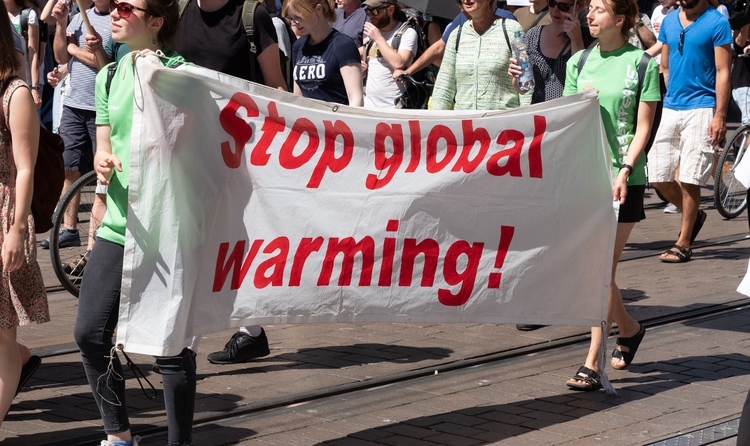Climate change is not the same thing as global warming

Global warming only refers to temperatures,while climate change refers to the effects that this warming has on the climate

It is very common to come across claims that deny climate change, confusing it erroneously with the concept of global warming. One recent example is the claim of a supposed environmental activist, known as Josefina Fraile, who stated that governments and environmental organisations started using the term “climate change” after they were unable to prove the existence of global warming, and that the term means “absolutely nothing” because “the climate has been changing for as long as we’ve known about it”.
These are MISLEADING narratives. It is not that one term has substituted the other, but that each of the two concepts describes a different phenomenon: global warming only refers to temperatures, while climate change refers to the effects that this warming has on the climate, especially the increase of extreme weather events.
Since they couldn’t prove global warming was caused by CO2, they made fools of themselves and decided to use the term climate change instead. But the climate has been changing for as long as we’ve known about it. It means absolutely nothing.
Global warming, as NASA explains, is “the long-term heating of Earth’s surface observed since the pre-industrial period (between 1850 and 1900) due to human activities, primarily fossil fuel burning, which increases heat-trapping greenhouse gas levels in Earth’s atmosphere”.
The role of CO2 in global warming has been demonstrated extensively, as we already explained, unlike what was argued in the podcast that we fact-checked.
For its part, climate change refers to the effect that global warming has had on the atmosphere, leading to an increase in the frequency of extreme events, such as heat waves, and in the intensity of others, such as hurricanes and fires. Therefore, climate change is the alteration of the climate and, in this case, principally the result of global warming. However, it is also exacerbated by other factors such as deforestation or the livestock industry.
In Article 1 of the United Nations Framework Convention on Climate Change (UNFCCC), signed in 1992, climate change is defined as a “change of climate which is attributed directly or indirectly to human activity that alters the composition of the global atmosphere and which is in addition to natural climate variability observed over comparable time periods”.
Two terms that have been around for decades
Both of the terms have been around for decades. While the scientific community has known for over 170 years that the carbon dioxide particles released from burning fossil fuels have the ability to trap the heat from the sun’s rays that enter the Earth’s atmosphere, it wasn’t until 1975 that the term “global warming” was used in a scientific journal (in this case, Science).
According to the UN, it addressed climate change as a real current issue in 1972 during the First Earth Summit, held in Stockholm. During the summit, governments were warned “to be mindful of activities that could lead to climate change and evaluate the likelihood and magnitude of climatic effects”.
The climate is always changing
The guest on this programme also states that climate change is an empty word because the climate “has been changing for as long as we’ve known about it”. That is true. In fact, we showed in this article that Earth has indeed undergone other climate changes.
So, yes: climate has been altered on a regional and global scale on numerous occasions throughout the course of the planet’s history. The difference with today’s situation is that the current changes are happening at an unprecedented speed: a fact that the scientists of the IPCC, the world’s leading organisation in climate change assessment, have been insisting on for over 20 years. That’s because the mechanisms that explained these big changes in climate in the past, during which Earth experienced massive cooling or heating, are not the same ones that are causing the current increase in temperatures.